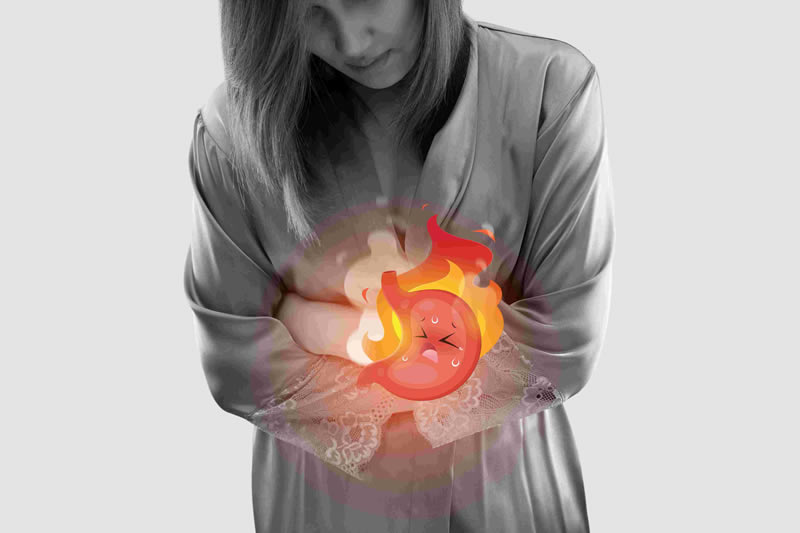Ms. Wang, 49 years old, presented with gastroesophageal reflux disease (GERD) while taking Western antacids, yet still experiencing excessive stomach acid. Upon further inquiry, Ms. Wang reported digestive issues and frequent diarrhea in addition to acid reflux. Through additional questioning and pulse diagnosis, she was preliminarily diagnosed with a pattern of mutual constraint between cold and heat, spleen deficiency, and dampness accumulation. Therefore, she was prescribed Ban Xia Xie Xin Tang combined with tonifying spleen and drying dampness formulas. During her second visit, Ms. Wang reported improvement in her acid reflux symptoms and gradually stopped needing antacids. After approximately three months of traditional Chinese medicine treatment without antacid medication, occurrences of GERD significantly reduced, and her susceptibility to diarrhea also notably decreased.
What is Gastroesophageal Reflux Disease (GERD)?
Gastroesophageal reflux disease, also known as acid reflux, refers to the abnormal reflux of stomach acid and food mixture into the esophagus or even the mouth. The typical symptoms of GERD include a burning sensation in the chest (heartburn) and abnormal sour taste in the mouth and throat, often occurring one to two hours after meals and worsening when lying down. Some individuals may also experience atypical symptoms such as chest pain, feeling of a lump in the throat, coughing, hoarseness, nighttime asthma, and difficulty swallowing.
Causes of GERD include relaxation of the lower esophageal sphincter, poor gastrointestinal motility, hypersensitivity of the esophagus to stomach acid, and significant mental stress. Additionally, specific lifestyle and dietary habits such as smoking, alcohol consumption, caffeine, carbonated beverages, spicy and fatty foods, and sweets can exacerbate GERD symptoms.
How does Traditional Chinese Medicine (TCM) treat Gastroesophageal Reflux Disease?
In TCM, GERD is seen as a manifestation of abnormal ascension and descent of spleen-stomach qi. Depending on the patient’s constitution and lifestyle habits, it may manifest as cold, heat, deficiency, excess, or a combination thereof, requiring a tailored diagnosis and prescription from a TCM practitioner. Acupuncture may also be used as an adjunct therapy, particularly in severe cases, alongside dietary and lifestyle adjustments to effectively alleviate symptoms and improve the quality of life for GERD patients.

